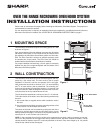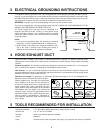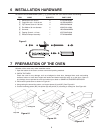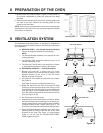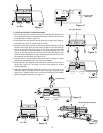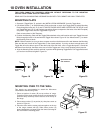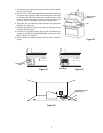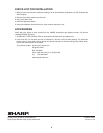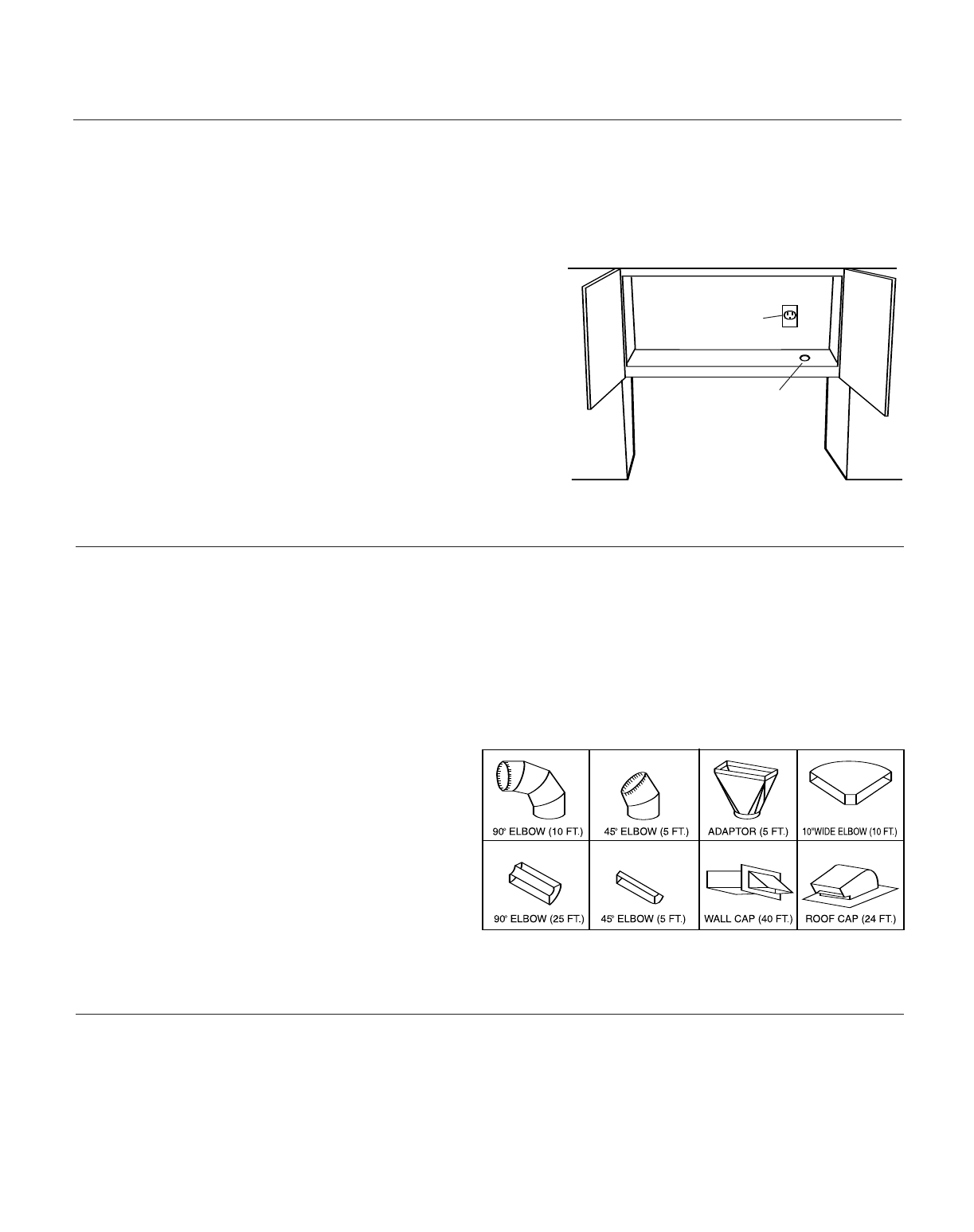
3 ELECTRICAL GROUNDING INSTRUCTIONS
This appliance must be grounded. This oven is equipped with a cord having a grounding wire with a ground-
ing plug. It must be plugged into a wall receptacle that is properly installed and grounded in accordance with
the National Electrical Code and local codes and ordinances. In the event of an electrical short circuit, ground-
ing reduces risk of electric shock by providing an escape wire for the electric current.
W
ARNING
- Improper use of the grounding plug can result in a risk of electric shock.
The oven is equipped with a 3-prong grounding plug. DO NOT UNDER ANY CIRCUMSTANCES CUT OR
R
EMOVE THE GROUNDING PIN FROM THE PLUG.
T
he Power Supply Cord and plug must be connected to a
separate 120 Volt AC, 60 Hz, 15 Amp, or more branch circuit,
single grounded receptacle. The receptacle should be located
inside the cabinet directly above the Microwave Oven/Hood
mounting location.
NOTE:
1. If you have any questions about the grounding or electrical
instructions, consult a qualified electrician or serviceperson.
2. Neither Sharp nor the dealer can accept any liability for dam-
age to the oven or personal injury resulting from failure to
observe the correct electrical connection procedures.
2
Figure 3
Ground
Receptacle
Opening for
Power Cord
4 HOOD EXHAUST DUCT
When the hood is vented to the outside, a hood exhaust duct is required. All ductwork must be metal;
absolutely do not use plastic duct. Check that all connections are made securely. Please read the following
carefully:
Exhaust connection: The hood exhaust has been designed to connect to a standard 3
1
/4" x 10" rectangular
duct. If round duct is required, a rectangular-to-round adapter must be used.
Rear exhaust: If a rear or horizontal exhaust is to be used, care should be taken to align the exhaust with
the space between the studs, or wall should be prepared at the time it is constructed by leaving enough space
between wall studs to accommodate exhaust.
Maximum duct length: For satisfactory air movement, the total duct length of 3
1
/4" X 10" rectangular or 6"
diameter round duct should not exceed 140 feet.
Elbows, adapters, wall, roof caps, etc. present addi-
tional resistance to air flow and are equivalent to
a section of straight duct which is longer than their
actual physical size. When calculating the total
length, add the equivalent lengths of all transitions
and adapters plus the length of all straight duct
sections. Figure 4 shows the approximate feet of
equivalent length of some typical ductwork parts.
Use the values in parentheses for calculating air
flow resistance equivalent, which should total less
than 140 feet.
5 TOOLS RECOMMENDED FOR INSTALLATION
• Phillips Screwdriver • 1
1
/2" Wood Bit or Metal Hole Cutter (if metal cabinet is used)
• Electric Drill •
1
/2",
5
/8" and
3
/32" Drill Bits
• Scissors • Saw to cut exhaust opening (if needed)
• Pencil • Measure
• Tape • Protective Drop Cloth for product and range—you may also use carton for protection
Figure 4



